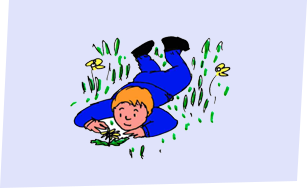Most of the children start at our school with some experience of using computer technology. We aim to broaden and further develop children’s innate confidence and enjoyment when exploring new technology, a skill of vital importance in the ever evolving world of computing. We aim to do this through delivering a broad and balanced curriculum which also develops children’s understanding of online safety. Used in conjunction with our PSHE and RSE curriculum, we aim to comprehensively teach all aspects of online behaviour and safety, appropriate for each year group. We ultimately want our children to become responsible online citizens of the future.
We aim for our scheme of work to have comprehensive cover of the National curriculum requirements, incorporating computer science, information technology and digital literacy, and to show clear progression of knowledge and skills from Reception to Year Two. This year we have begun to use Kapow Primary scheme of work for teaching our computing curriculum.
language development
In order to reduce cognitive overload and develop our children’s working memories, a precise bank of key computing vocabulary will be identified in each lesson, planned, taught, used in context and built upon in subsequent lessons through a unit and relevant future topic.
learning behaviours
Individual computing lessons will incorporate and require individual, paired and/or group work depending on the tasks. Elements of each unit will require the children to investigate, enquire, think creatively and solve problems. Teachers will aim to communicate when specific school learning behaviours are needed within these lessons.
physical activity
In all year groups, our computing curriculum will be taught through a variety of plugged and unplugged activities. Unplugged activities such as following and creating algorithms, will sometimes be linked to real life, familiar practical activities such as playing a playground game, making a sandwich or putting a coat on. Lessons are adapted for children who need support with fine motor.
cultural capital
Our computing curriculum is linked to each half term’s curriculum topic in each year group. Where meaningful, units have been linked to other curriculum subjects such as science, music and art in order to support the transference of skills and cross curricular learning. Computing skills are also reinforced in our Music and Art curriculum when Year Two children explore composing on Garage band and KS1 children explore animation tools in art and design.
creative curriculum design and progression
This year we have begun to use Kapow Primary’s Computing scheme of work and resources, which are based on the requirements of the National Curriculum. We aim for our children to develop their working memories and build their computing knowledge securely overtime, often in the context of a wider curriculum topic, which encourages them to make links between different curriculum areas and help the learning stick. For Key Stage 1, this scheme is organised into the five areas of: computer systems and networks; programing; creating media; data handing; and online safety. Units of learning build on previous units across each year and from year to year. Each unit outlines key knowledge and skills, and unit outcomes. Each lesson outlines the learning objective and success criteria, key vocabulary and questions, opportunities for cross curricular links, adaption and assessment opportunities. In Reception, we feel that it is vital that our children have the opportunity to develop foundational computing skills though exploring technology, mostly through play based and unplugged activities. Online safety will also be taught through our PSHE and RSE curriculum.
If you were to walk into a Computing lesson at Garden Suburb Infant School, you would see:
- All children engaged and enthusiastic to gain computing knowledge.
- Children handling technology confidently and safety, including in the continuous provision in the early years.
- Children who can work independently, and are also keen to share and work co-operatively. They take turns, are keen to enquire, explore and ask questions.
- Children using subject specific vocabulary, appropriate to their age and stage of development, with understanding and confidence, to talk about different aspects of their work.
- A focus on enquiry and collaborative problem solving in lessons.
- Teachers demonstrating secure subject knowledge, teaching lessons which are explicitly adapted to be both ambitious and to meet the needs of pupils with Special Educational Needs.
- Teachers and support staff presenting information clearly, and encouraging appropriate discussion to learn key concepts.
- Teachers and support staff helping children embed and use knowledge, not just memorise disconnected facts.
- A powerful learning environment, including displays which reflect their learning

